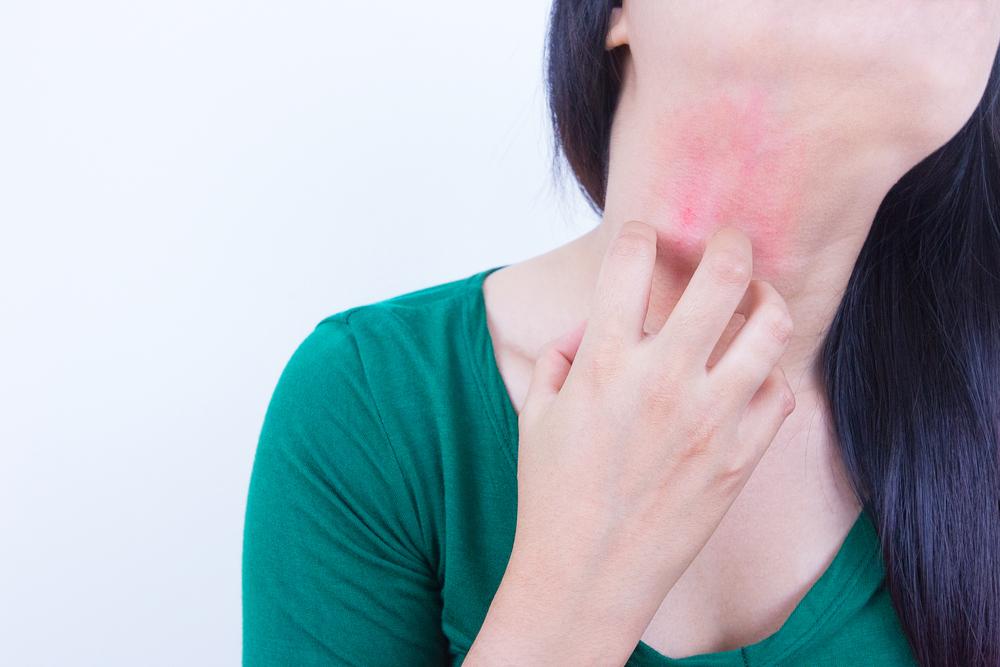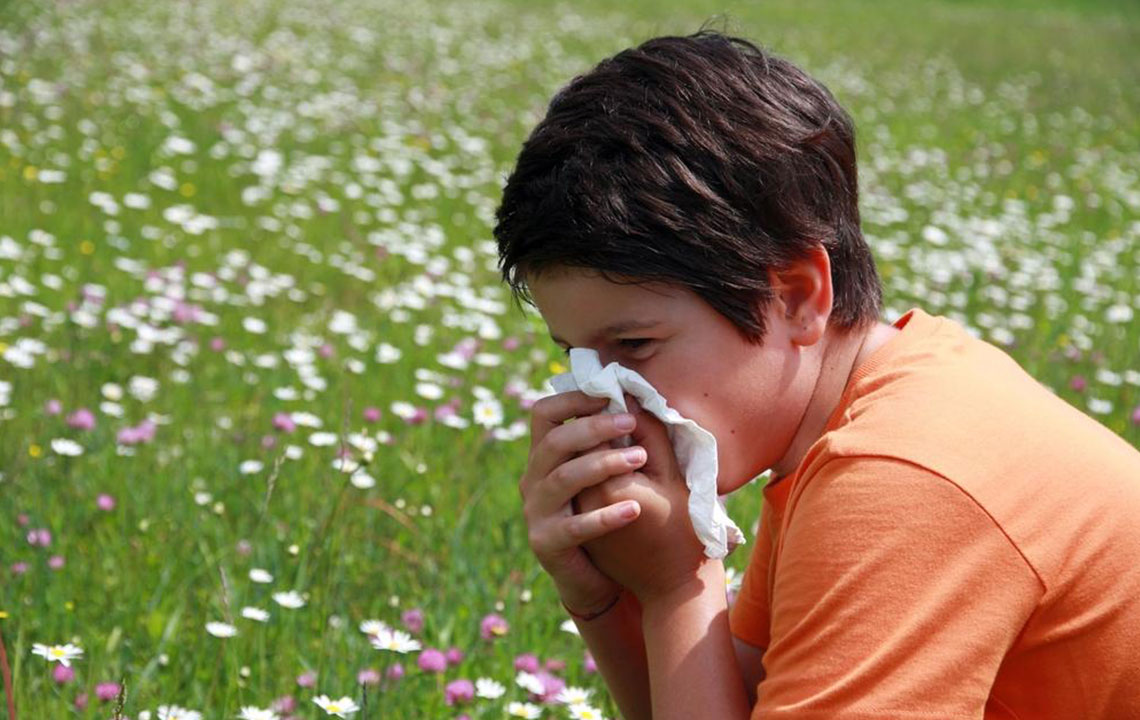Comprehensive Guide to Managing Persistent Hives: Effective Strategies and Treatments
This comprehensive article explores effective strategies for managing persistent hives, emphasizing diagnosis, treatments like antihistamines and biologics, lifestyle modifications, and trigger avoidance. It aims to empower individuals suffering from chronic urticaria with knowledge to improve their quality of life through professional medical advice and self-care practices, highlighting the importance of tailored treatment plans for long-term management.

Comprehensive Guide to Managing Persistent Hives: Effective Strategies and Treatments
Understanding Chronic Urticaria: Causes, Symptoms, and Diagnosis
Urticaria, more commonly known as hives, is a prevalent skin condition characterized by raised, itchy welts that can appear suddenly on the skin. While many cases are mild and resolve within a few days, a significant subset develops into a persistent condition called chronic urticaria, where symptoms last longer than six weeks. This can be physically uncomfortable and psychologically distressing for those affected. Proper understanding of the causes, symptoms, and diagnosis processes is crucial for effective management and treatment planning.
Chronic urticaria is primarily an autoimmune disorder, meaning the body's immune system mistakenly attacks its own tissues, leading to recurrent skin outbreaks without an apparent external trigger. It affects individuals across all age groups but is especially common among adults. Its etiology is complex, involving genetic predispositions, immune system irregularities, and environmental factors. People with underlying health issues such as hormonal imbalances, thyroid disorders, or even certain cancers are more susceptible to developing this condition.
Despite its autoimmune nature, various triggers can exacerbate or precipitate episodes of chronic urticaria. Common external factors include consumption of alcohol, the intake of certain medications like anti-inflammatory drugs, wearing tight clothing, exposure to extreme temperatures, and even stress. Identifying and avoiding these triggers forms a critical part of managing the condition effectively.
Understanding chronic urticaria involves recognizing the autoimmune processes and external factors that can influence flare-ups. When left unmanaged, the condition can lead to persistent discomfort and impact daily life significantly.
Strategies for Managing and Treating Chronic Urticaria
Successfully managing chronic urticaria requires a combination of medical treatment, lifestyle modifications, and sometimes psychological support. While it can be challenging, a structured approach can help reduce the frequency and severity of outbreaks, improve quality of life, and potentially lead to remission over time.
Healthcare professionals typically recommend a phased treatment plan, starting with over-the-counter remedies and advancing to more specialized therapies if necessary. Early intervention is key to controlling symptoms and preventing complications.
Primary Medical Interventions
The cornerstone of treating chronic urticaria involves antihistamines, which help counteract the effects of histamine—a chemical released during allergic reactions that causes itching and swelling.
Common Antihistamines: Fexofenadine, Cetirizine, Loratadine, and Desloratadine are widely used. These medications are generally available over the counter but should be taken as prescribed, especially at higher doses, which may be recommended by the healthcare provider for more stubborn symptoms.
Dosing and Usage: Sometimes, taking antihistamines at night can reduce daytime symptoms. Always consult your doctor regarding dosage adjustments to ensure safety and effectiveness.
Additional Pharmaceutical Options
When antihistamines alone are insufficient, other medications can be introduced:
Antidepressant Creams: Doxepin, a topical antidepressant, can help alleviate severe itching but may cause side effects such as drowsiness.
Histamine Blockers: Oral or injectable H-2 receptor antagonists like ranitidine, famotidine, and cimetidine may help reduce histamine production.
Anti-inflammatory Drugs: Short-term use of corticosteroids such as prednisone can control inflammation and swelling but must be used cautiously because of potential side effects.
Asthma Medications: Leukotriene modifiers, including montelukast and zafirlukast, are often prescribed alongside antihistamines, especially if airway symptoms are present.
Biologic Therapies: For cases that do not respond to conventional treatments, biologic drugs like Omalizumab (Xolair), administered as a monthly injection, have shown remarkable efficacy by targeting specific immune system pathways.
Immunosuppressants: Drugs such as tacrolimus (Protopic), cyclosporine (Neoral, Gengraf), and others can modulate immune responses to prevent flare-ups but require careful medical supervision due to their immunosuppressive nature.
Lifestyle and Dietary Modifications
Adjusting lifestyle habits and diet can significantly influence the course of chronic urticaria. Implementing these changes often enhances medical therapy and improves overall well-being:
Dietary Adjustments: Consuming foods with anti-inflammatory properties can promote healing. These include omega-3-rich fish like anchovies, beta-carotene-rich vegetables like mustard greens, antioxidant-rich fruits such as apples (quercetin content helps preempt histamine release), turmeric (a potent anti-inflammatory spice), and ground flax seeds rich in omega-3s and fiber.
Avoiding Triggers: Steer clear of known allergens like peanuts, eggs, pollen, or specific medications that can provoke flare-ups.
Skin Care: Use gentle moisturizers recommended by dermatologists to maintain skin hydration and prevent irritation.
Clothing and Environmental Factors: Wear loose, breathable clothing to reduce skin irritation and avoid exposure to extreme temperatures or harsh environmental conditions.
Stress Management: Since stress can worsen symptoms, practices like yoga, meditation, or breathing exercises can be beneficial.
Routine and Consistency: Adhere strictly to prescribed medication routines and dietary guidelines to optimize treatment outcomes.
Prognosis and When to Seek Medical Attention
It’s important to remember that chronic urticaria is not contagious and can be managed successfully with proper medical care. While some individuals experience spontaneous remission within one to five years, others may require long-term therapy. Persistent or worsening symptoms should prompt a visit to a dermatologist or allergist for reassessment and potential adjustment of the treatment plan.
Regular follow-ups, personalized treatment plans, and vigilant lifestyle modifications are key to managing this condition effectively and improving the patient's quality of life.





